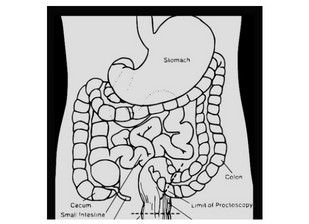Gastrointestinal Issues Which Impede Successful Weight Restoration in Anorexia Nervosa and ARFID
By Philip S. Mehler, MD, FACP, FAED, CEDS
(Please note: The following article is Part I of a 3-part series with each part addressing a major GI issue that impairs refeeding. Part 2 can be found by clicking here and part 3 can be found here.)
Part I
Nutritional rehabilitation and weight restoration are primary goals of the overall treatment for patients with anorexia nervosa (AN) and Avoidant/Restrictive Food Intake Disorder (ARFID). Therefore, medical conditions which interfere with this goal must be considered and successfully treated if a favorable outcome is to be achieved. Three such common gastrointestinal complications, which develop as a result of the marked weight loss of AN and ARFID, are gastroparesis, superior mesenteric artery (SMA) syndrome, and diarrhea. They will be reviewed in order to enable clinicians, caring for these patients, to definitively address these potential impediments to successful weight restoration.
Gastroparesis
Gastroparesis refers to delayed emptying of the stomach due to impairment of the antral portion of the stomach’s normal contractions. This in turn, causes reduced grinding of the food and an overall slowing of the normal rate of the egress of food from the stomach. Therefore, as the food eaten during the course of a day abnormally accumulates in the stomach, the patient with gastroparesis experiences predictable feelings of fullness, nausea, bloating and early satiety during meals along with non-descript mild left upper quadrant abdominal discomfort which may impede refeeding. While weight restoration will almost always resolve this problem, medications can be temporarily utilized to hasten gastric emptying. Some commonly used medications to treat gastroparesis are metoclopramide and azithromycin. Metoclopramide has the additional benefit of being an antiemetic but is associated rarely with the development of tardive dyskinesia. Azithromycin can prolong the QTc interval on the EKG. Therefore, before starting it and a few days later, it is recommended to repeat the EKG to ensure a normal QTc interval. A nuclear medicine gastric emptying study, which is the gold standard for the diagnosis of gastroparesis, can be obtained to confirm the diagnosis of gastroparesis, but is not often needed given how common this complaint is in patients with AN and ARFID, with moderate or greater degrees of weight loss.
Suggested reading – Norris M, et al, Gastrointestinal findings Associated with Anorexia Nervosa. Int’l Journal of Eating Disorders 2016; [49:21]6-237.
About the author:
As President of Eating Recovery Center, Dr. Philip Mehler is the designated head of medical services across Eating Recovery Center’s full National treatment spectrum. Dr. Mehler began his career at Denver Health more than 30 years ago and was formerly its Chief of Internal Medicine. He was Denver Health’s Chief Medical Officer (CMO) for 10 years until he was promoted to its Medical Director, a position he held until his retirement in 2014. He is also the Glassman Professor of Medicine at the University of Colorado School of Medicine, and has conducted research into the optimal medical treatment of the most severe cases of Anorexia Nervosa and Bulimia. He founded ACUTE at Denver Health, the country’s center of excellence for those with the most extreme forms of Anorexia nervosa, and continues to serve as its Executive Medical Director. Dr. Mehler has authored 425 scientific publications, including 3 textbooks, Medical Complications of Eating Disorders, published by Johns Hopkins University Press and is now in its third edition. His newest book was just released in November 2017. Dr. Mehler was the recipient of the Academy of Eating Disorders 2012 Outstanding Clinician Award, has been recognized among the “Best Doctors in America” for the past 22 years in a row, and was voted the “Top Internal Medicine physician in Denver” multiple times by 5280 Magazine. Dr. Mehler is a member and fellow of the Eating Disorders Research Society and the Academy of Eating Disorders, as well as a member of the editorial board of the International Journal of Eating Disorders. He has lectured extensively on a national and international level as the world’s leading medical expert on the topic of the medical complications of eating disorders.
